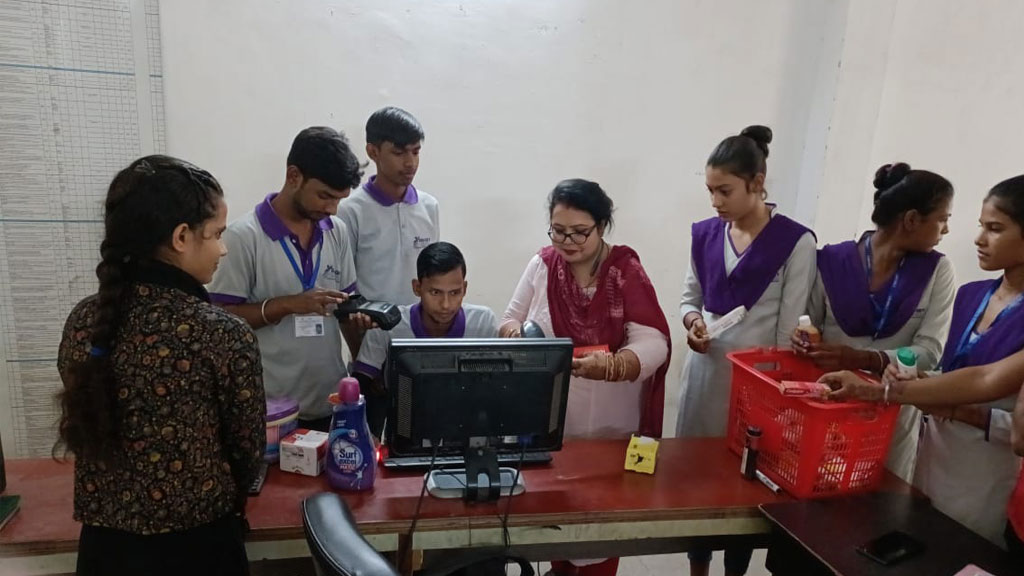Introduction:
In the realm of Corporate Social Responsibility (CSR), the focus has expanded beyond traditional philanthropy to encompass initiatives that drive sustainable social change. Among these, the role of education skills has emerged as a powerful force in nurturing minds and fostering lasting impact. This blog post delves into the transformative influence of education skills within CSR initiatives, exploring how the commitment to education shapes communities, empowers individuals, and contributes to a brighter, more equitable future.
1. Empowering Through Knowledge:
Education is the cornerstone of empowerment. CSR initiatives that prioritize education skills aim not only to provide access to learning but also to equip individuals with the skills necessary for personal and professional growth. By nurturing minds through quality education, CSR programs create a ripple effect that uplifts entire communities.
2. Bridging Educational Gaps:
In many regions, educational disparities are a significant barrier to social progress. CSR initiatives focusing on education skills often work to bridge these gaps, ensuring that marginalized communities have equal access to quality education. By addressing issues such as literacy, numeracy, and digital proficiency, these initiatives empower individuals to participate fully in the opportunities of the modern world.
3. Fostering Lifelong Learning:
Education skills go beyond formal schooling; they encompass a commitment to lifelong learning. CSR programs that emphasize continuous skill development and adult education contribute to a culture of ongoing learning within communities. This fosters adaptability, resilience, and a collective commitment to personal and societal improvement.
4. Supporting Teachers as Agents of Change:
Teachers play a pivotal role in the education ecosystem. CSR initiatives that focus on education skills often invest in teacher training programs, recognizing that skilled educators are essential for delivering high-quality education. By supporting teachers as agents of positive change, these initiatives create a multiplier effect, impacting the lives of countless students.
5. Unlocking Economic Opportunities:
Education is a powerful catalyst for economic empowerment. CSR initiatives that prioritize education skills contribute to workforce development by equipping individuals with the skills demanded by evolving industries. This, in turn, unlocks economic opportunities, reduces unemployment, and stimulates community growth.
6. Fostering Innovation and Creativity:
Education skills empower individuals to think critically, solve problems, and unleash their creativity. CSR initiatives that integrate innovative and creative learning methodologies contribute to a generation of forward-thinking individuals. By fostering an environment of innovation, these initiatives sow the seeds for community-driven solutions to emerging challenges.
7. Promoting Inclusivity and Diversity:
An inclusive society begins with an inclusive education. CSR initiatives that focus on education skills often advocate for diversity and inclusivity in educational settings. This not only ensures equal access to learning but also cultivates an environment that celebrates differences and promotes understanding among individuals from various backgrounds.
8. Investing in Technological Literacy:
In the digital age, technological literacy is a key component of education. CSR programs that invest in education skills recognize the importance of preparing individuals to navigate the digital landscape. By providing access to technology and teaching digital skills, these initiatives empower communities to participate fully in the digital economy.
9. Measuring Impact Through Educational Milestones:
One of the unique aspects of CSR initiatives centered on education skills is the ability to measure impact through educational milestones. Whether it’s increased literacy rates, improved exam scores, or higher enrollment rates, these tangible outcomes provide a clear picture of the positive change brought about by CSR efforts.
10. Cultivating Responsible Global Citizens:
Education skills within CSR initiatives extend beyond academic knowledge; they aim to cultivate responsible global citizens. By instilling values of social responsibility, environmental consciousness, and ethical behavior, these initiatives contribute to the development of individuals who are not only academically proficient but also committed to making a positive impact on the world.
Conclusion:
Nurturing minds through education skills is a potent strategy within the realm of Corporate Social Responsibility. As CSR initiatives continue to evolve, placing education at the forefront creates a legacy of empowered communities, resilient individuals, and a society that values the transformative impact of education. By nurturing minds, CSR becomes a force for positive change that transcends immediate philanthropy, laying the foundation for a future where every mind has the opportunity to flourish and contribute to the betterment of humanity.
- By admin

